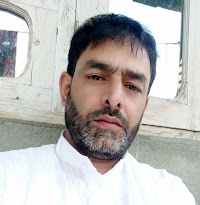Our Past II | JANDKNCERT
The Delhi Sultans | History VII | Questions and Answers
Chapter 3: The Delhi Sultans
Let’s Recall
Question 1. Which ruler
first established his or her capital at Delhi?
Answer: Ananga Pala of the Tomara dynasty.
Question 2. What was
the language of administration under the Delhi Sultans?
Answer: Persian.
Question 3. In whose
reign did the Sultanate reach its farthest extent?
Answer: Muhammad Tughluq.
Question 4. From which
country did Ibn Battuta travel to India?
Answer: Morocco.
Let’s
Understand
Question 5. According
to the "circle of justice", why was it important for military
commanders to keep the interests of the peasantry in mind?
Answer: Because peasants produced the revenue which paid soldiers’
salaries; without peasants, no army could be maintained.
Of course, Shafiq!
Here's Chapter 3: The Delhi Sultans with both questions and
brief 1–2 line answers, as requested:
Question 6. What is
meant by the “internal” and “external" frontiers of the Sultanate?
Answer: The internal frontiers were areas within the subcontinent
brought under control, while the external frontiers referred to regions outside
the core territory that the Sultans aimed to conquer.
Question 7. What were
the steps taken to ensure that muqtis performed their duties? Why do you think
they may have wanted to defy the orders of the Sultans?
Answer: Muqtis were kept under control by accountants and were
frequently transferred; they may have defied orders to treat their iqta as
hereditary and increase their power.
Question 8. What was
the impact of the Mongol invasions on the Delhi Sultanate?
Answer: The Mongol invasions forced the Sultans to strengthen their
army, build forts, and create garrison towns for protection.
Let’s
Discuss
Question 9. Do you
think the authors of tawarikh would provide information about the lives of
ordinary men and women?
Answer: No, authors of tawarikh mostly wrote about kings and nobles,
ignoring the daily lives of ordinary people.
Question 10. Raziyya
Sultan was unique in the history of the Delhi Sultanate. Do you think women
leaders are accepted more readily today?
Answer: Yes, women leaders are more accepted today than in the past,
though they may still face challenges.
Question 11. Why were
the Delhi Sultans interested in cutting down forests? Does deforestation occur
for the same reasons today?
Answer: They cut forests to expand agriculture and control people;
today, deforestation also happens for urban development and industry.
Question 12. Discuss
the contribution of Sultan Zain-ul-Abidin to the economy and society of
Kashmir.
Answer: Zain-ul-Abidin promoted agriculture, handicrafts, and religious
tolerance, greatly improving Kashmir’s economy and society.






.webp)




Leave your comment here.